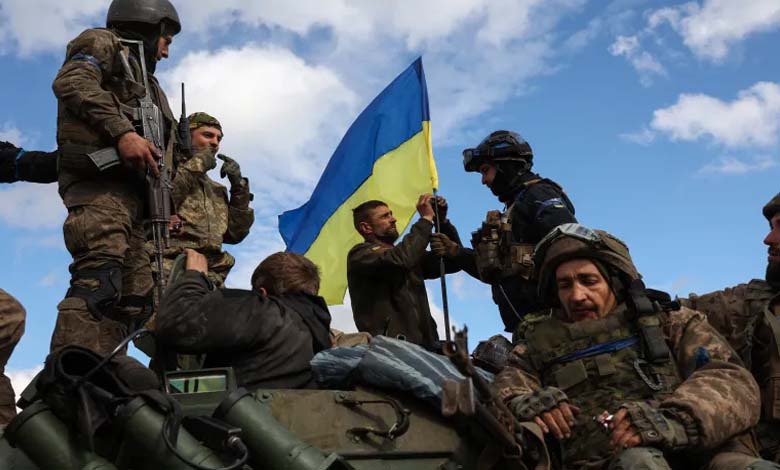Peace in Ukraine: Russia Demands Reliable Security Guarantees

Russia’s envoy to international organizations in Vienna, Mikhail Ulyanov, stated that Moscow agrees any future peace agreement on Ukraine must provide Kyiv with security guarantees — but stressed that Russia, too, is entitled to credible assurances.
-
Peace in Ukraine: Russia Demands Reliable Security Guarantees
-
North Korea’s Chonma-2 to Ukraine: Can It Outperform Russia’s Tanks?
In a post on X, Ulyanov wrote: “A number of EU leaders insist that a future peace agreement must deliver reliable security guarantees for Ukraine. Russia concurs. But it is equally entitled to expect effective security guarantees in return.”
He did not elaborate on the exact nature of these assurances, though Moscow has consistently demanded that Ukraine remain neutral and refrain from joining NATO, which it regards as a direct threat to its national security.
On Sunday, U.S. Special Envoy Steve Witkoff announced that President Donald Trump and President Vladimir Putin had agreed on “robust security guarantees” for Ukraine during their summit in Alaska.
-
Ukraine War and Nuclear Warheads: What Does Putin Want from the Alaska Summit?
-
Ukraine War: 5 Possible Scenarios for the Final Chapter
Speaking to CNN, Witkoff explained: “We agreed on strong security guarantees that I would call a game changer. Russia made certain concessions regarding five regions” — referring to Donetsk, Luhansk, Kherson, and Zaporizhzhia, partially occupied and annexed by Moscow in 2022, along with Crimea, annexed in 2014.
He voiced hope that the upcoming meeting between Trump, Ukrainian President Volodymyr Zelensky, and European leaders would prove “productive”:
“I’m optimistic that on Monday we’ll have a meaningful session, reach real consensus, return to the Russians, and move this peace agreement forward.”
-
Arming Ukraine: A Current Account to Funnel $10 Billion Into an Open War
-
Explosive July in Ukraine: Zelensky Reveals the Black Harvest
Sanctions Looming
Despite Witkoff’s conciliatory tone, U.S. Secretary of State Marco Rubio warned of “serious consequences,” including the prospect of fresh sanctions, should no peace deal materialize.
Speaking to NBC, he said: “If we ultimately fail to reach an agreement, there will be consequences — not only the continuation of war, but the persistence of sanctions and the possibility of new ones being imposed.”
-
Russia Destroyed Most of Them: How the Reign of the Abrams Tank Collapsed in Ukraine
-
20,000 drones in six months: Drone factories fueling the war in Ukraine
Multilateral Diplomacy
On Monday, Trump is scheduled to host Zelensky at the White House, alongside Italian Prime Minister Giorgia Meloni, French President Emmanuel Macron, German Chancellor Friedrich Merz, European Commission President Ursula von der Leyen, U.K. Prime Minister Keir Starmer, and other European leaders.
On Sunday, the “coalition of the willing” — a grouping of Ukraine’s allies — held a virtual meeting to prepare for the White House summit. After discussions in Brussels with Zelensky, Ursula von der Leyen reaffirmed the imperative of safeguarding Ukraine’s territorial integrity.
She welcomed Trump’s proposal to extend NATO-style security assurances to Kyiv:
-
Quantity and Precision: Missile Superiority Gives Russia the Edge Over Ukraine
-
War Consumes the Reserves: Ukraine Lures Gen Z with Cash and Perks
“We welcome President Trump’s determination to provide security guarantees akin to NATO’s Article 5,” she said, expressing hope for an early trilateral summit bringing together Trump, Putin, and Zelensky.
Zelensky, however, stressed that he sees “no indication” of Russia’s readiness to engage in such a meeting, insisting that the current front lines should form the basis of peace talks.
“We need genuine negotiations, starting from where the battle lines stand today,” he declared, noting that European leaders were broadly aligned with his stance.
-
Russia and Ukraine Between Fire and Negotiation: Missiles in the Sky and Exchanges on the Ground
-
From 2022 to 2025… Key Diplomatic Milestones to Stop the War in Ukraine
Pressure and Red Lines
Following his Alaska summit with Putin, Trump reportedly pressed Zelensky by phone. According to sources, Putin had offered to freeze most of the front lines in exchange for Kyiv’s full withdrawal from Donetsk, a strategic industrial hub. Zelensky rejected the proposal.
As of now, Russia controls roughly one-fifth of Ukraine’s territory, including nearly three-quarters of Donetsk, where its forces first intervened in 2014.












